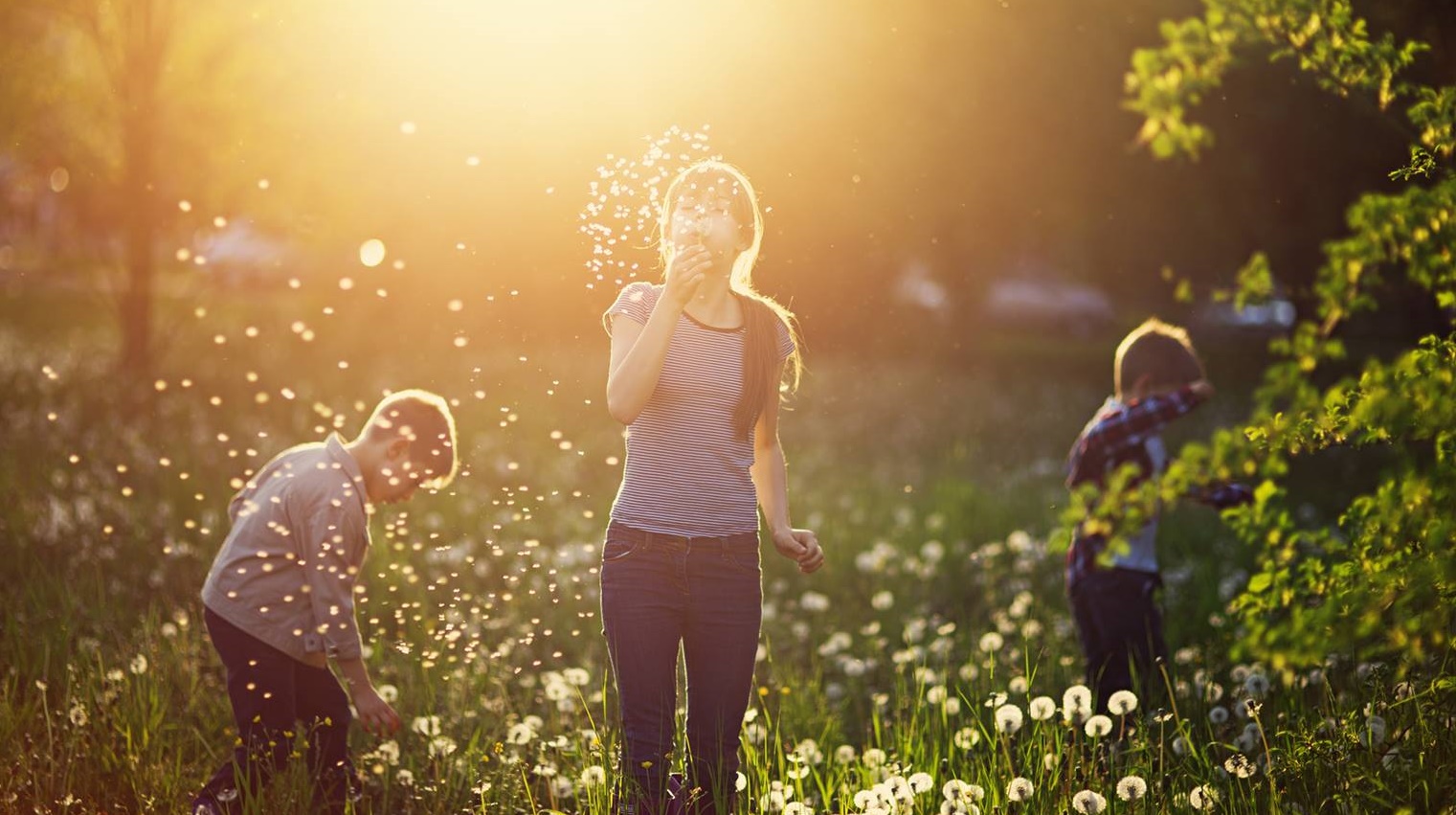Pollen allergy: What helps against hay fever in everyday life?

Itchy eyes, runny nose, irritated throat: More and more people are suffering from pollen allergies. A few simple measures help to get through the hay fever season better – even without medication.
Allergists are seeing more and more people suffering from pollen allergies – often older people with hay fever, which they never had before and which occurs suddenly. The number of pollen allergy sufferers has increased significantly in the last 20 years. A third of all adults are now affected.
Pollen flying around affects them and triggers symptoms such as watery eyes, runny or blocked nose, throat and skin irritation and shortness of breath. Birch pollen is particularly unpleasant. In the spring, the trees produce them in very large numbers and the wind carries them up to 300 kilometers.
Why are pollen allergies on the rise?
Reason for the increasing allergies: The pollen season is getting longer and longer. In mild winters, the hazelnut sometimes flowers as early as December, instead of February or March as it used to. In addition, immigrated plants, such as ragweed, extend the pollen season from August to October. Allergy sufferers therefore only have a rest phase for two to three months a year. This puts the body under constant stress. And the newly immigrated plants such as ragweed also have particularly aggressive pollen.
Climate change increases pollen count
Environmental medicine specialists at the Helmholtz Zentrum München are investigating the effects of environmental influences on plant pollen. For them it is clear: climate change and environmental pollution have led to more and more allergies over the past 20 years. They assume that by 2050 half of all people will suffer from allergies.
Because of the higher temperatures, many plants produce more pollen. Especially periods of drought, as in the past three years, mean extreme stress for the plants. To save themselves from extinction, the trees produce huge amounts of pollen after such years. And more pollen means more allergens and therefore more allergies.
Pollen becomes more aggressive
But it’s not just the amount of pollen: the researchers found that it’s also becoming more aggressive as a result of climate change. Allergenic plants such as birches, grasses and ragweed grow in plant chambers at the Helmholtz Institute. Light, temperature and composition of the air can be precisely controlled and controlled.
To study the impact of climate change, the researchers exposed some of the plants to heat and drought. An extract was obtained from the pollen of these plants, which contains all the proteins and biomolecules of the pollen. The researchers were able to see that the pollen has changed: it carries different proteins than pollen from unstressed plants. Because under stress, the plants boost their immune system and produce special proteins that are supposed to protect them from negative environmental influences.
It is precisely these proteins that people with a pollen allergy react particularly strongly to. The pollen are therefore becoming more aggressive due to the influences of climate change and environmental pollution. In addition, the human mucous membranes are constantly irritated by exhaust gases and other air pollution. This in turn makes them more susceptible to allergies.
Relieve hay fever without medicine
Anyone who suspects that they have a pollen allergy should consult a doctor. The symptoms can worsen over time and, in the worst case, lead to chronic asthma. In order to get through the spring well despite hay fever and to alleviate the symptoms, a few simple measures can help.
Keep your home free of pollen
It is important to keep the pollen out of the apartment and especially the bedroom as much as possible. Because there they irritate the mucous membranes at night. The following tricks are helpful:
Do not remove street clothes in the bedroom.
Wash your hair in the evening or brush it out thoroughly so that the pollen does not spread on the pillow.
Change linens at least weekly.
Keep windows closed while sleeping.
Thoroughly vacuum floors, upholstered furniture and carpets regularly. We recommend vacuum cleaners with HEPA filters, which also remove tiny suspended particles from the air.
Wipe furniture surfaces with a damp cloth.
Do not dry laundry outdoors.
Install air purifier. The devices filter pollen and dust from the air and can thus provide relief.
Proper ventilation for pollen allergy sufferers
When airing, allergy sufferers should follow a few rules to get as little pollen as possible into the living space. In principle, it is better to ventilate the city in the morning hours, as there is a lot of pollen in the air there, especially in the evenings. In the country, on the other hand, it is the opposite, there the pollen tends to fly in the morning, so it is better to air the room in the evening. However, this rule only describes a trend. Other factors also play a role, above all the current weather conditions, the wind and the immediate living environment, such as a blooming birch tree right in front of the door. A good time to ventilate is after a downpour, as the rain washes the pollen out of the air.
When driving, it is better to close the windows and switch off the ventilation. Special pollen filters can also be installed.
Nasal douche and steam baths relieve symptoms
To alleviate the symptoms, hay fever sufferers can also try rinsing the pollen out of their nose. There are special nasal douches for this in the pharmacy. Use this twice a day if possible. Steam baths or inhalations are also pleasant. They moisturize the mucous membranes and relieve itching. Cold compresses, such as a damp washcloth, help against reddened, itchy eyes.
Drugs and hyposensitization
If none of this brings relief, you can also resort to medication. So-called antihistamines inhibit the allergic reaction. They are available in pharmacies as a nasal spray, eye drops or in tablet form. Those affected with severe allergic symptoms can also think about hyposensitization, which is carried out by a specialist. With this immunotherapy, allergies can usually be treated successfully. Over a longer period of time, the allergen is initially administered weekly, then monthly, usually by injection. The immune system should get used to the allergen, and the allergic reaction usually subsides.


